NASA ‘Hidden Figures’ mathematicians, Ella Fitzgerald, BET co-founder among influential women on Virginia list
The Commonwealth of Virginia gets its name from Queen Elizabeth I, the Virgin Queen. Its rolling hills, mountains, plains and sea reflect the diversity of its origins and character.
So what better place to find influential and inspiring women from the past century?
It has been 100 years since women first received the right to vote – an effort made possible by influential women here in Virginia.
In August, America will celebrate the 100th anniversary of the 19th Amendment, when women gained the legal right to vote. In commemoration of this occasion, the USA TODAY Network is naming 10 American women from all 50 states and the District of Columbia who’ve made significant contributions to their respective states and country as Women of the Century.
The Virginia list was carefully narrowed down to include Grammy Award-winning artists, CEOs, civil rights leaders, poets, athletes and more. We considered both women who have lived in a state or were born there.Twelve women were chosen from a list of nearly 70 worthy women, narrowed down by a panel of diverse Virginia women.
Are you registered to vote? Take the first step to making sure your vote counts.
One woman, although close, did not make the list, even though she helped pave the way for many other women in Virginia and the rest of the country. Lila Meade Valentine advanced the cause of women’s suffrage at the turn of the century and worked for causes such as public education. Although she wouldn’t live to see her state vote for suffrage, or to even vote herself, Valentine lived long enough to witness the 19th Amendment become law. She died in 1921.
The panel selected women who showed outstanding achievement in one of these areas: arts and literature, business, civil rights, education, entertainment, law, media, nonprofits and philanthropy, politics, science and medicine, and sports. Other requirements included U.S. citizenship and having lived between 1920 and 2020.
Who is your Woman of the Century? Did we miss a woman you think should be on our list? We’d like to hear from you.
June Carter Cash
Award-winning singer
(1929-2003)
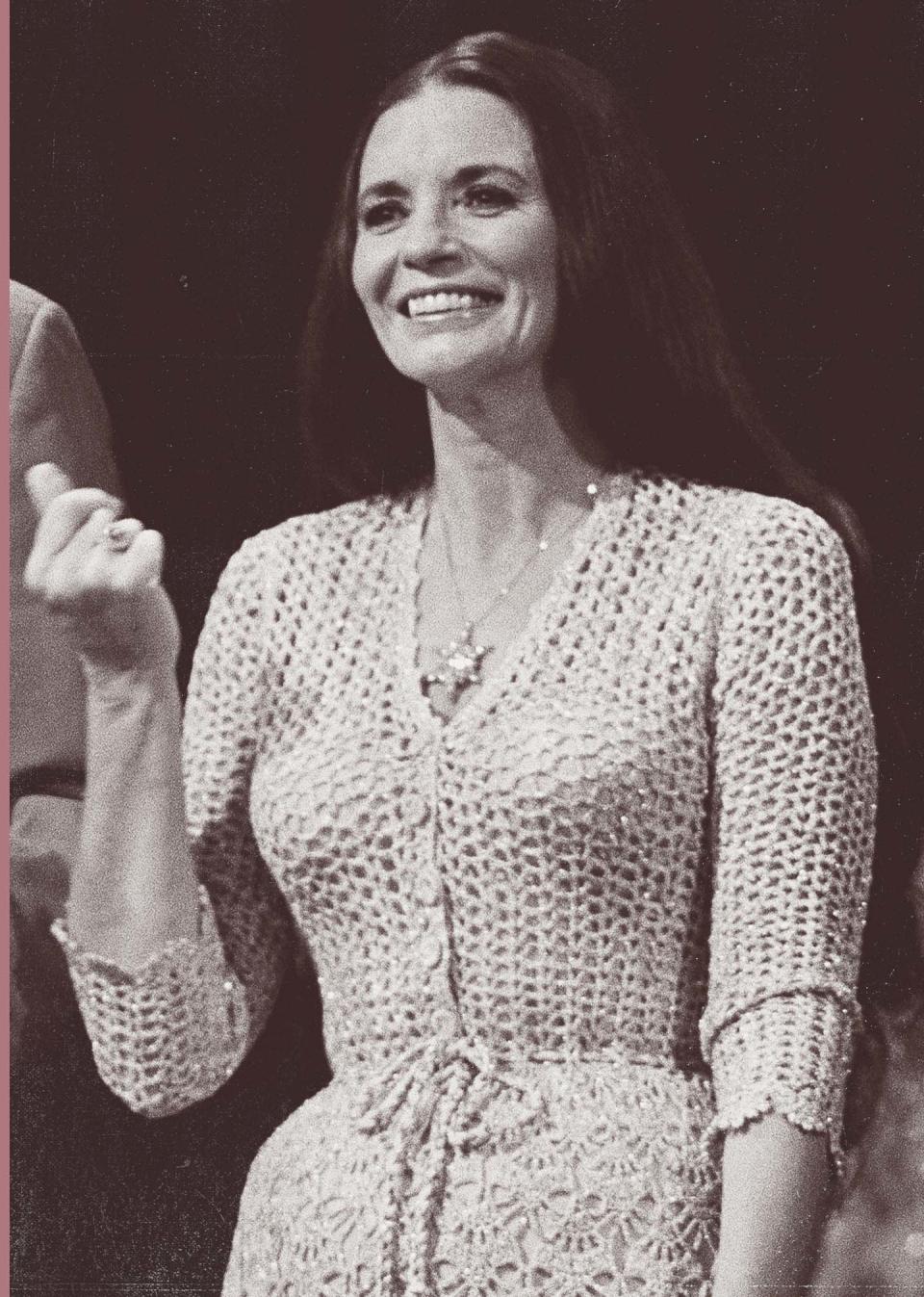
Grammy Award-winning musician June Carter Cash came from humble beginnings in Maces Spring, Virginia. She was born Valerie June Carter June 23, 1929, and became a leading figure in country music, specifically with the Carter Family and collaborations with Johnny Cash.
Carter Cash started her career in music as part of the Carter Family, which was a trio that was originally Alvin Pleasant Carter, his wife, Sarah, and his sister-in-law Maybelle (Carter Cash’s mother). The group was inducted into the Country Music Hall of Fame.
The Carter Family disbanded in 1943 and Carter Cash started touring with her mother and sisters as the Carter Sisters and Mother Maybelle. That act gained traction and was featured on numerous radio and TV programs. It then became a regular at the Grand Ole Opry in Nashville, Tennessee.
In 1950, Carter Cash broke out on her own and made her solo debut at the Grand Ole Opry. Later she toured with Elvis Presley.
In 1952, Carter Cash married Carl Smith. The two performed at Nashville's Grand Ole Opry, and they had a daughter, Rebecca Carlene. After their divorce, Carter Cash was briefly married to Edwin Nix, and they had a daughter, Rozanna ("Rosie").
Carter Cash’s career reached beyond country and Appalachian folk music. She also pursued a career in acting, appearing on TV shows, including “Gunsmoke.”
In 1961, Carter Cash joined Johnny Cash’s road show. In 1963 she co-wrote the song “Ring of Fire” with Cash, and the two began performing together. They earned a Grammy Award for their song “Jackson” in 1967. The couple were married in 1968 and had their son, John Carter Cash, in 1970. Carter Cash also encouraged Cash to get treatment for drug addiction.
Their relationship was portrayed in the 2005 movie “Walk the Line.”
Carter Cash earned a Grammy for best country vocal performance by a duo or group in 1970, and in 1999 she won the best traditional folk album for her album “Press On.” In 2003, she won Grammy awards for best traditional folk album and for best female country vocal performance for the song "Keep on the Sunny Side."
The women of ‘Hidden Figures’
Mary Jackson (1921-2005),
Katherine Coleman Johnson (1918-2020), Dorothy Vaughan (1910-2008)
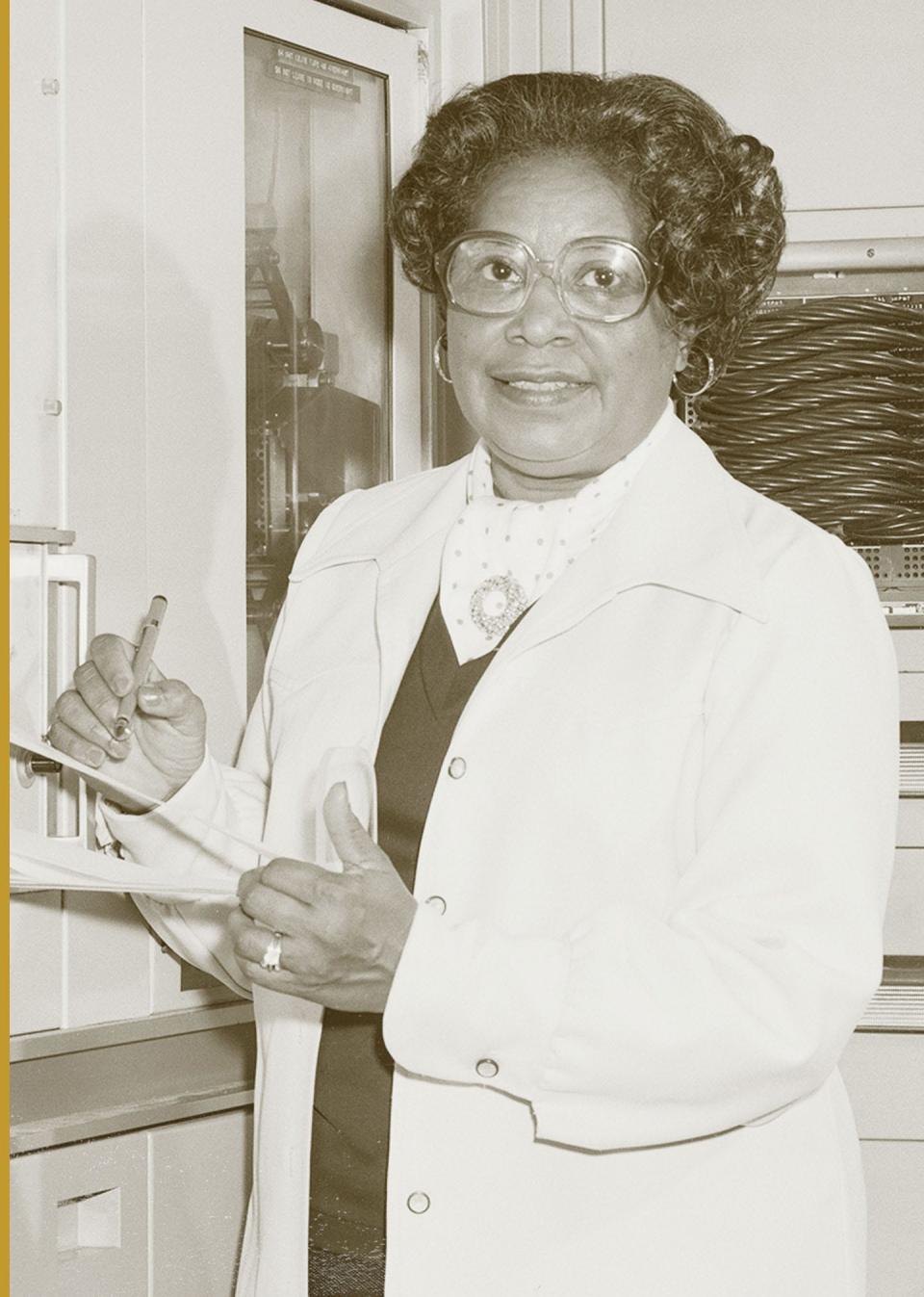
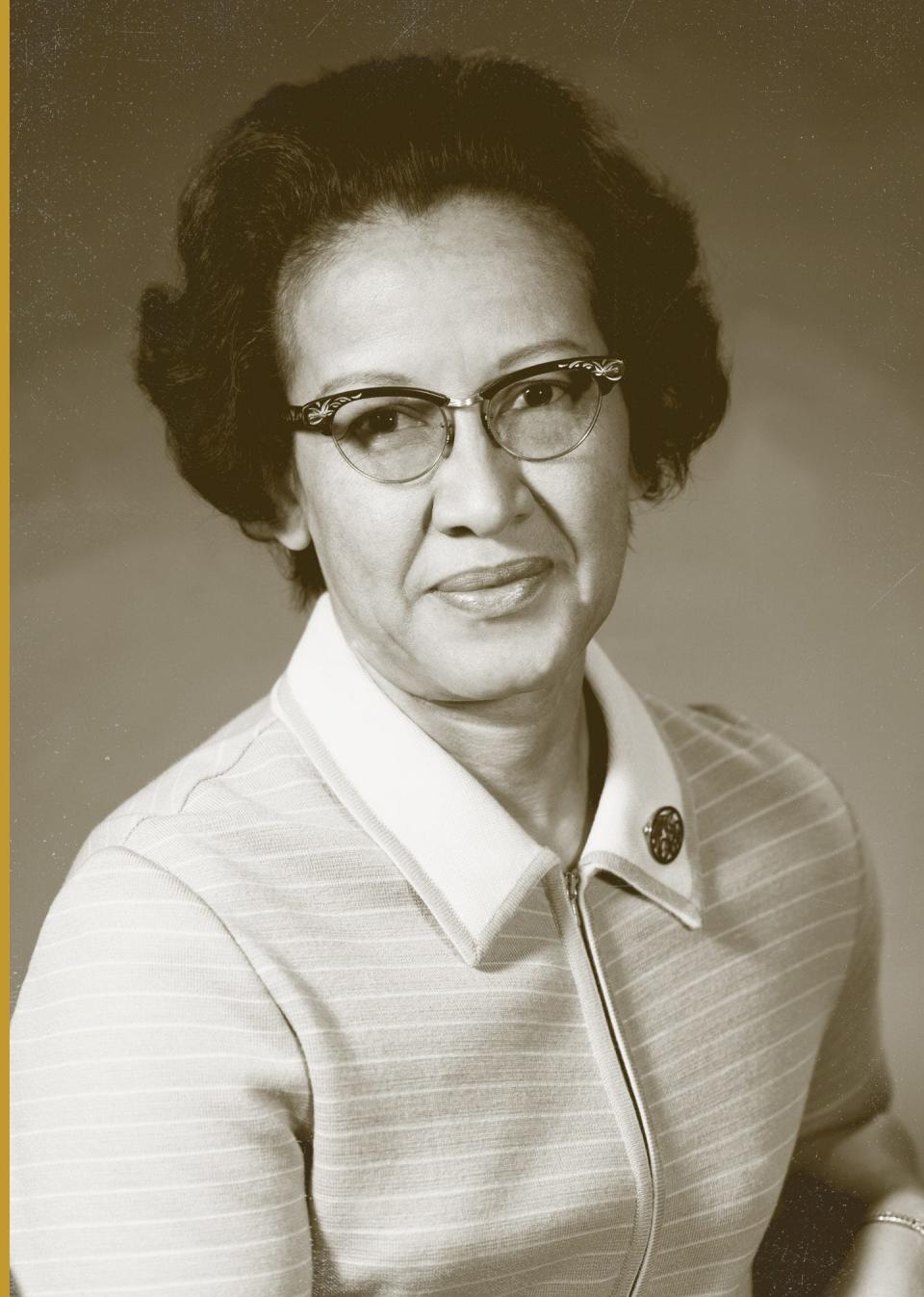
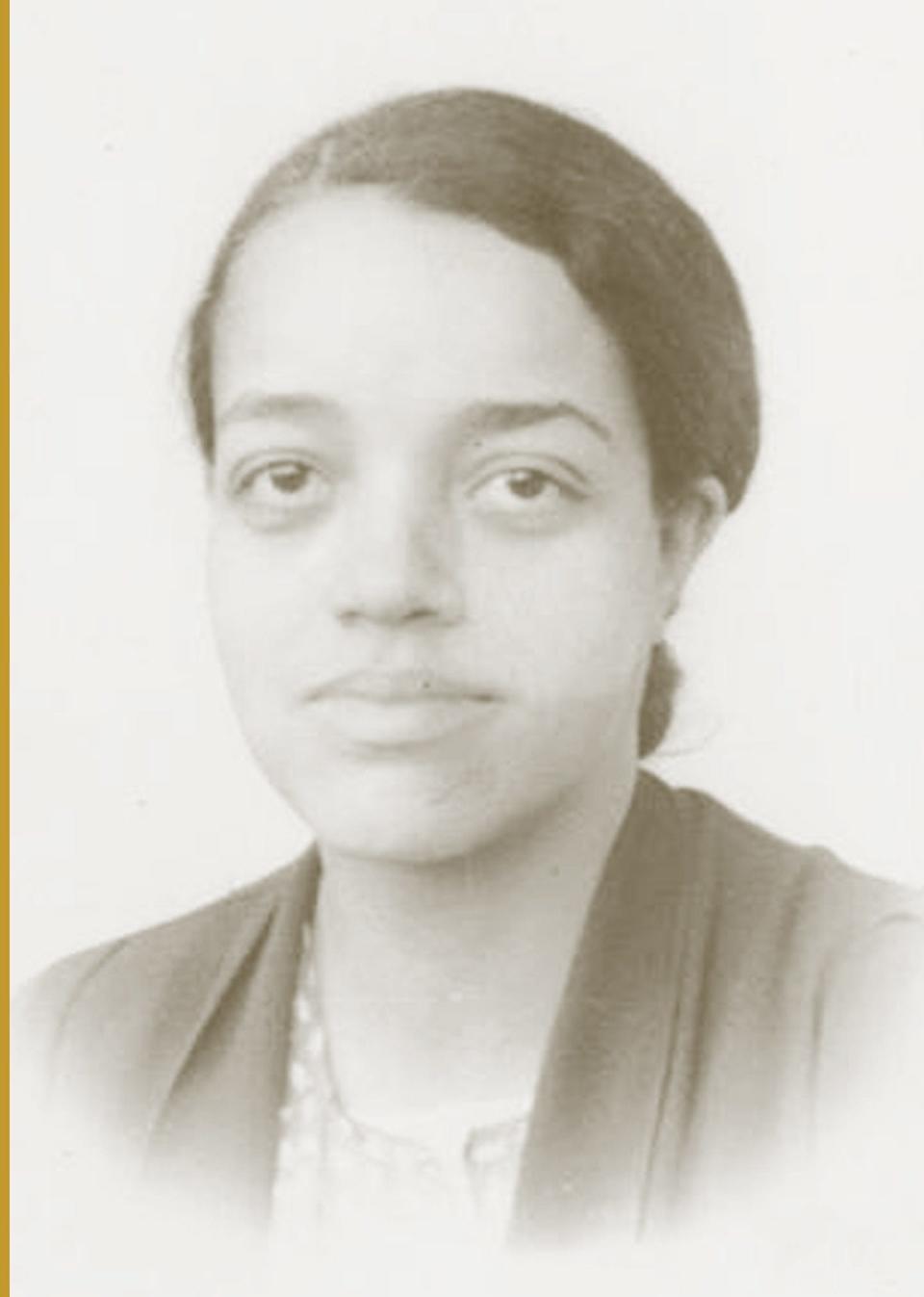
Known collectively as NASA's "Hidden Figures," these three Black women were members of NASA’s segregated mathematical work unit at what is now the Langley Research Center. Long before computer machines came on the scene, "computers" were people who performed critical calculations; they were instrumental in the launch of astronaut John Glenn into orbit, and their journey was portrayed in a 2016 film.
Mary Jackson (1921-2005) NASA's first Black female engineer, Jackson was born in Hampton, Virginia, in 1921 and graduated from Hampton Institute in 1942 with degrees in mathematics and physical science. She taught school in Maryland before starting work at Langley in 1951. After two years in West Area Computers, Jackson accepted a position at Langley’s Supersonic Pressure Tunnel, and in 1958 she became NASA’s first Black female engineer, co-writing a number of technical reports on wind tunnel research. She retired from NASA in 1985 and died in Hampton in 2005. In 2020, NASA announced its headquarters in Washington, D.C., would be named after Jackson.
Katherine Coleman Johnson (1918-2020) Born in West Virginia, Johnson had an intelligence that was obvious early: By 14, she had graduated high school. One of three Black students to integrate West Virginia's graduate schools, she graduated from West Virginia State College in 1937 with degrees in mathematics and French at just 18 after taking every mathematics course offered. She started work at Langley in 1953, and over a 33-year career wrote or co-wrote 26 research reports. In 2015, at age 97, Johnson was awarded the Presidential Medal of Freedom, America's highest civilian honor, by President Barack Obama. She died on Feb. 24, 2020, at age 101.
Dorothy Vaughan (1910-2008) The first Black supervisor at NASA, Vaughn was born in Kansas City, Missouri. She earned a bachelor’s degree in mathematics from Wilberforce University in Ohio in 1929, and after a stint as a public school teacher, she started at Langley in 1943. She was the head of the West Area Computing Unit from 1949 to 1958 – one of NASA's few female supervisors – until segregation at NASA ended and the unit was disbanded. She retired in 1971 and died in Hampton, Virginia, in 2008.
Maggie L. Walker
First female bank owner in the U.S.
(1864-1934)
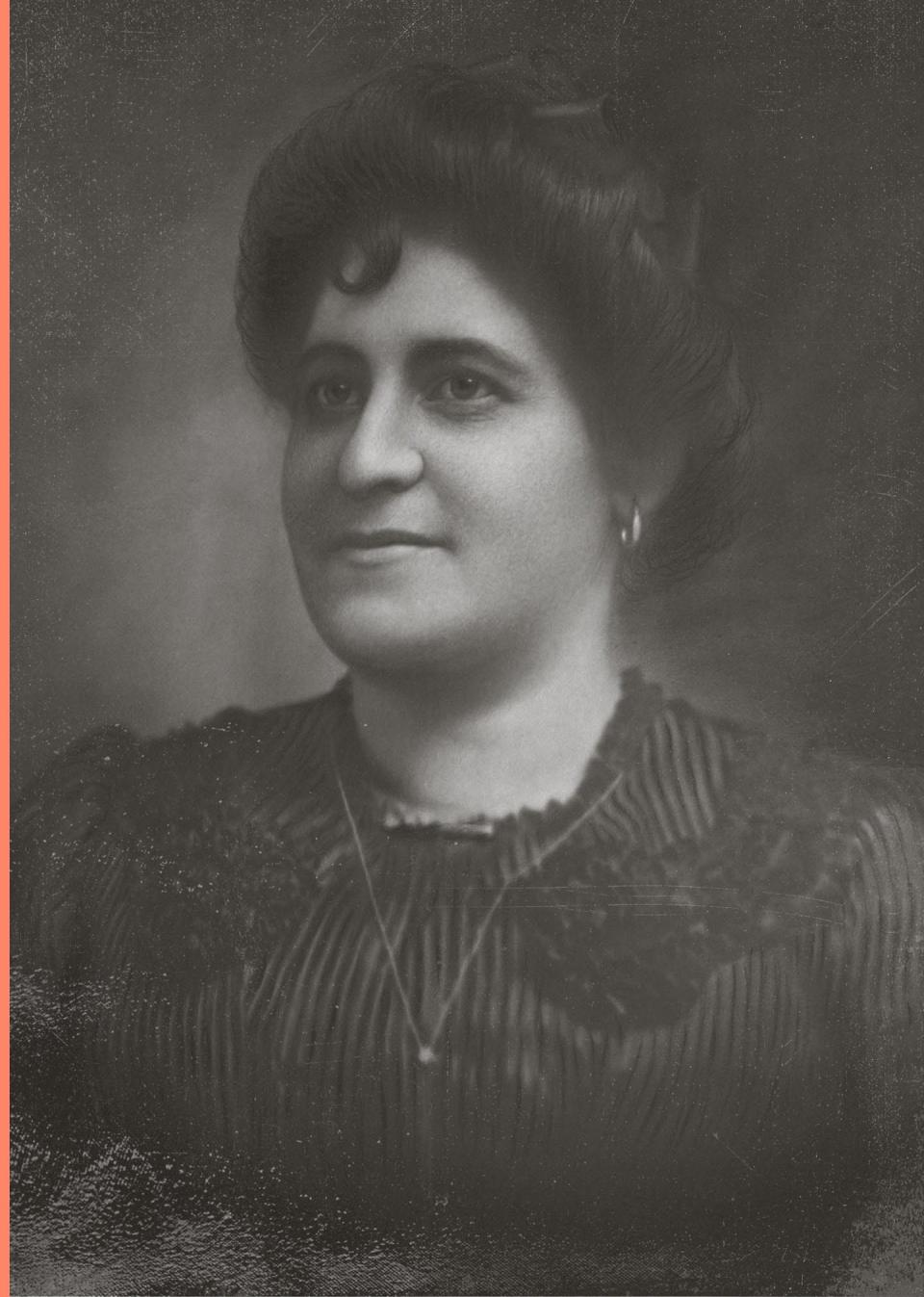
Born on the estate of an abolitionist and Union spy in Richmond, Virginia July 15, 1864, Maggie L. Walker would become the first woman to own a bank in the United States.
Her mother, Elizabeth Draper, was a former enslaved person working as an assistant cook for the Unionist Elizabeth Van Lew; her father, Eccles Cuthbert, was an Irish-American reporter for the New York Herald who reported from Richmond and may have met Draper while on the Van Lew estate.
Walker's mother married William Mitchell, whose death a decade later threw the family into poverty. Soon after her stepfather's death, her mother started a small laundry business. Walker delivered clean laundry to white customers. "I was not born with a silver spoon in my mouth but with a laundry basket practically on my head,” she said in 1904, recalling her childhood.
She studied to become a teacher, and after three years of teaching was forced to quit because of a law forbidding married women from teaching. She married Armstead Walker Jr. in 1886, and the couple went on to have three children.
Using her skills in math and business for the Independent Order of Saint Luke’s, a post-Civil War benevolent group, led to her history-making venture into banking.
In 1903 she founded the Saint Luke Penny Savings Bank. Walker encouraged financial responsibility among adults and children by handing out free savings banks to children.
The Penny Savings Bank expanded and was serving more than 50,000 customers by the 1920s. It survived the Great Depression and after numerous changes in ownership was still in business in the 21st century.
Sheila Johnson
Co-founder of BET
(1949- )
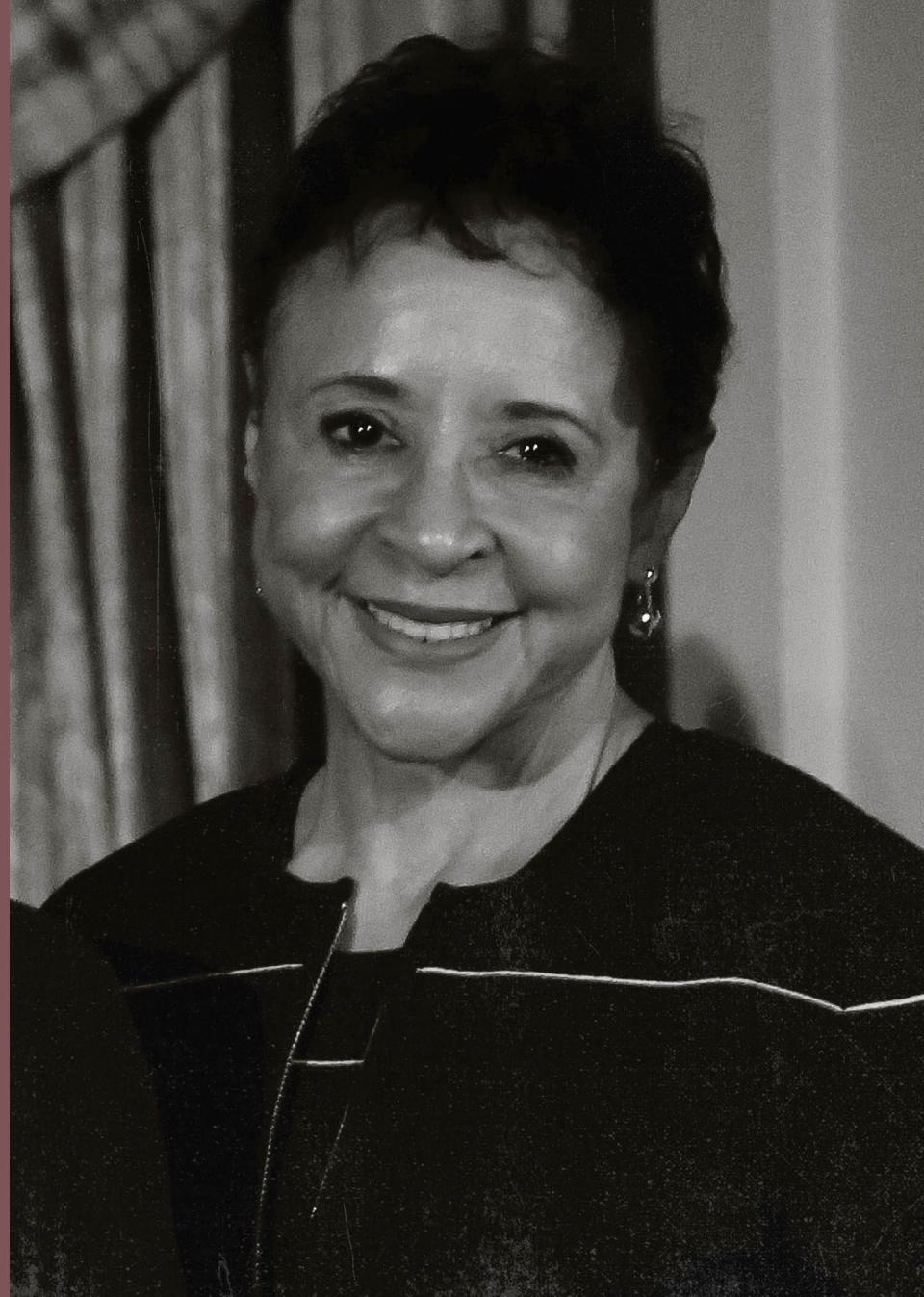
Entrepreneur and philanthropist Sheila Crump Johnson became a leading figure and voice for the Black community in the early 1980s. She and her then-husband, Robert Johnson, founded the cable television network Black Entertainment Network (BET) in 1979. The cable network focused on issues primarily within the Black community.
She moved to Virginia in the mid-1990s and left BET in 1999. She purchased an equestrian farm in Middleburg, Virginia, with the goal of turning the 350-acre estate into a country resort.
In 2005, she formed Salamander Hospitality, a hotel resort and spa management firm. She has a net worth of about $820 million and was named one of Forbes’ 2019 America’s Self-Made Women.
Also in 2005, Johnson purchased the Washington Mystics WNBA franchise. She became the only Black woman to own stakes in three professional sports teams: the Mystics (WNBA), the Wizards (NBA) and the Capitals (NHL). She is president and managing partner for all three and the vice chairman of Monumental Sports and Entertainment.
She has served as executive producer of four documentary films that have appeared at either the Sundance Film Festival or the Tribeca Film Festival. She also helped finance the Screen Actors Guild nominated feature film “The Butler” and is founder and chair of the Middleburg Film Festival, an annual independent film festival that started in 2013.
Johnson serves on a number of boards and leadership councils, including the Board of Governors of Parsons School for Design in New York, the Leadership Council at Harvard Kennedy School’s Center for Public Leadership, the Jackie Robinson Foundation and the International African American Museum.
From 2006 to 2009, she served as global ambassador for CARE, a humanitarian organization that combats global poverty by empowering women. Johnson received the Eleanor Roosevelt Val-Kill Medal in 2012 for her humanitarian efforts.
Ella Jane Fitzgerald
Jazz icon
(1917-1996)
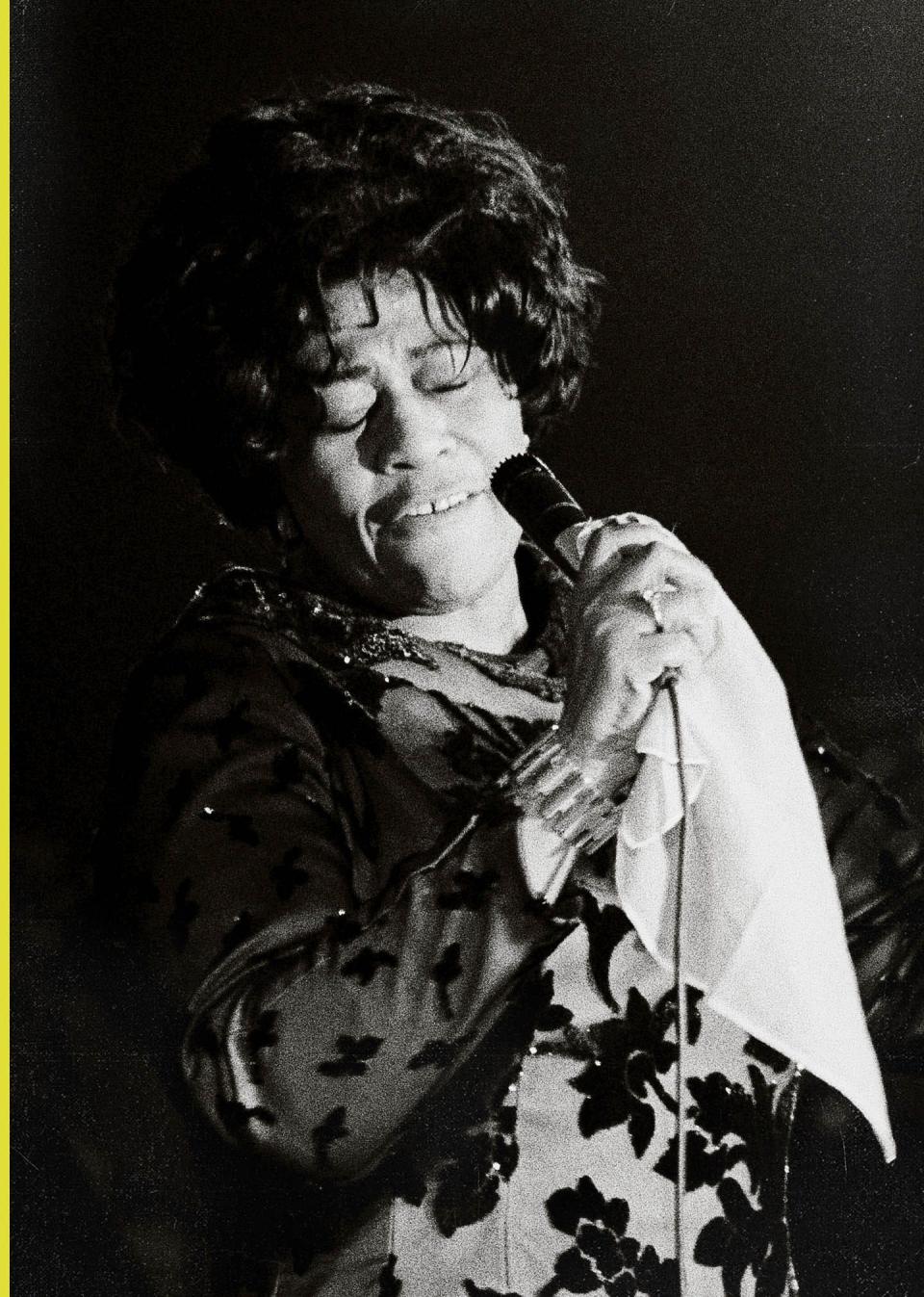
Ella Fitzgerald, considered one of the greatest jazz singers of all time, was born April 25, 1917, in Newport News, Virginia.
Before becoming world-renowned and dubbed “The First Lady of Song,” Fitzgerald had to overcome a number of obstacles. Her parents split up shortly after her birth, and she later moved to Yonkers, New York, with her mother and her mother’s longtime boyfriend.
After her mother died in 1932 when Fitzgerald was a teenager, she went to live with her aunt. Her stepfather died a short time later. During this period, which began near the tail end of the Great Depression, Fitzgerald’s grades started slipping in school, and she began skipping classes. She got into trouble with the police and was sent to reform school. There, she was sometimes beaten before she escaped.
She caught a break in 1934 when her name was pulled during a weekly drawing at the Apollo Theater in Harlem, allowing her to compete during amateur night. Although she’d planned to dance, Fitzgerald made a last-minute decision to sing instead after seeing an earlier dancing act she decided was too tough to follow. She was a hit.
By 1936 Fitzgerald made her first recording. Two years later in 1938, when she was 21, Fitzgerald recorded "A-Tisket, A-Tasket," which sold 1 million copies and skyrocketed her to fame.
During her six-decade career, Fitzgerald faced many forms of bigotry, but her manager wouldn’t put up with any form of discrimination at her concerts, hotels or restaurants, even in the Deep South. Fitzgerald credited Marilyn Monroe’s insistence in the 1950s that she be hired to sing at a popular Hollywood nightclub. After that, Fitzgerald said, she never had to perform in a small venue for the rest of her career.
Fitzgerald frequently made generous donations to organizations for disadvantaged youth, and President Ronald Reagan awarded her the National Medal of Arts in 1987.
During her career, Fitzgerald recorded more than 200 albums and was nominated for 20 Grammy Awards, winning 13.
In 1991, she gave her final concert at New York's Carnegie Hall, marking the 26th time she’d performed there.
Dawn Staley
Olympic gold medalist
(1970- )
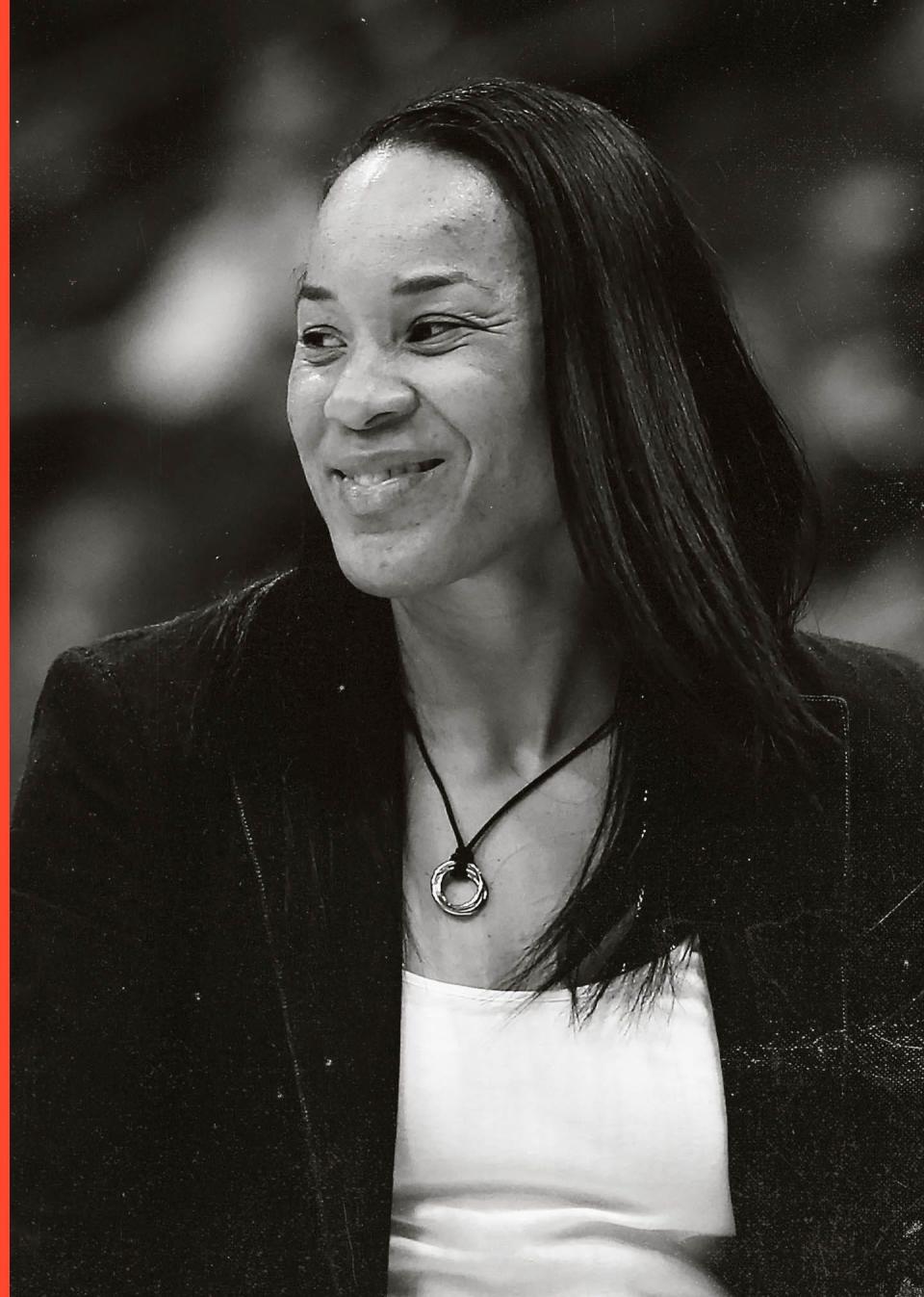
Dawn Staley is still recognized as one of the greatest women’s basketball players of all time.
Raised in the projects of Northern Philadelphia, Staley played for the University of Virginia from 1989 to 1992, leading her team to three consecutive Final Fours. She was named national collegiate player of the year her junior and senior years at UVA and is still second all-time in career points and assists. She is one of only three players in school history to score more than 2,000 points.
Now the women's basketball coach at the University of South Carolina, Staley led her team to the 2017 NCAA national championship, just the second Black female coach to win a women's NCAA basketball title.
She is a member of the Virginia Sports Hall of Fame, as well as the Naismith Memorial Basketball Hall of Fame and the Women’s Basketball Hall of Fame. In 2011, Staley was named as one of 15 most influential players in WNBA history.
Staley also led the United States to three Olympic gold medals as a player and is currently the head coach of the USA Basketball Women’s National Team. In 2004 she was chosen to carry the U.S flag into the Olympic Stadium during the opening ceremonies in Athens, Greece.
In addition to her accomplishments on the basketball court, she has also been an active worker with children in Philadelphia through the Dawn Staley Foundation. In 2007 the WNBA created the Dawn Staley Community Leadership Award in her honor.
Hazel O’Leary
First Black woman to serve as secretary of energy
(1937- )
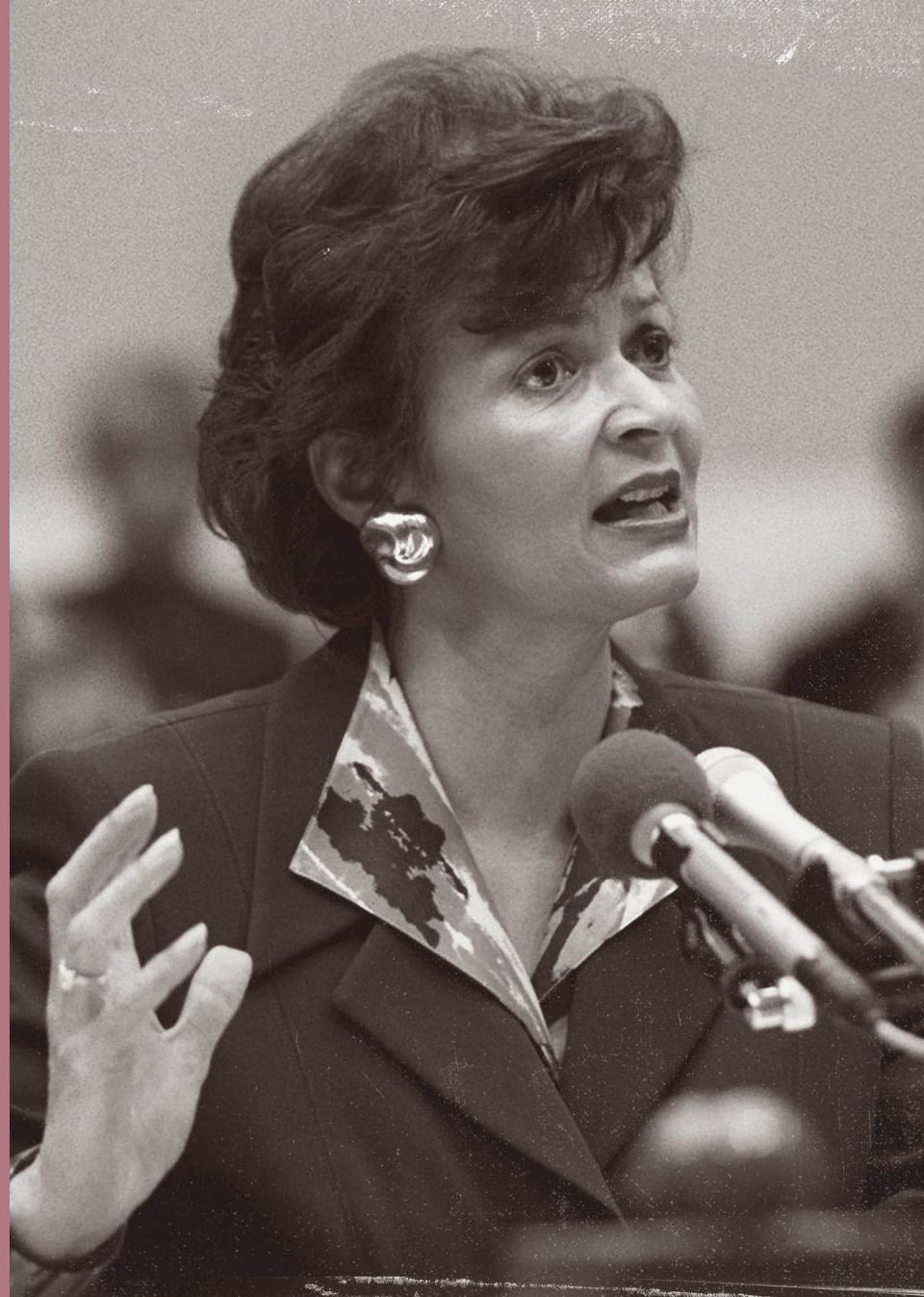
Hazel O’Leary was the first Black woman to be U.S. secretary of energy, nominated by President Bill Clinton in 1993.
Born May 17, 1937, in Newport News, Virginia, O’Leary attended Huntington High School in Newport News, but her parents eventually sent her to live with an aunt in New Jersey in an effort to escape public school segregation in Virginia. O’Leary graduated from the High School of Fine and Performing Arts in Newark, New Jersey, in 1955.
Four years later, O’Leary graduated Phi Beta Kappa from Fisk University, a historically Black university in Nashville, Tennessee.
O’Leary earned her law degree from Rutgers University and, shortly after graduating, joined the New Jersey State Attorney General’s Office as an assistant prosecutor.
In addition to serving under Clinton, O’Leary also served in the administrations of Presidents Gerald Ford and Jimmy Carter. Under Ford, she directed the Office of Consumer Affairs/Special Impact and was general counsel of the Community Services Administration. O’Leary headed the Economic Regulatory Administration under Carter.
While working for the Carter administration, O’Leary met her husband, John F. O’Leary. After getting married in 1980, they left the Department of Energy to start their own energy consulting firm.
After the death of her husband in 1989, O’Leary worked for a Minnesota utility company, eventually being named president of its natural gas division. When Clinton was elected in 1992, he nominated her to be secretary of energy.
Upon leaving the post, she became president of Fisk University, retiring from that position in 2012.
Nikki Giovanni
Poet
(1943- )
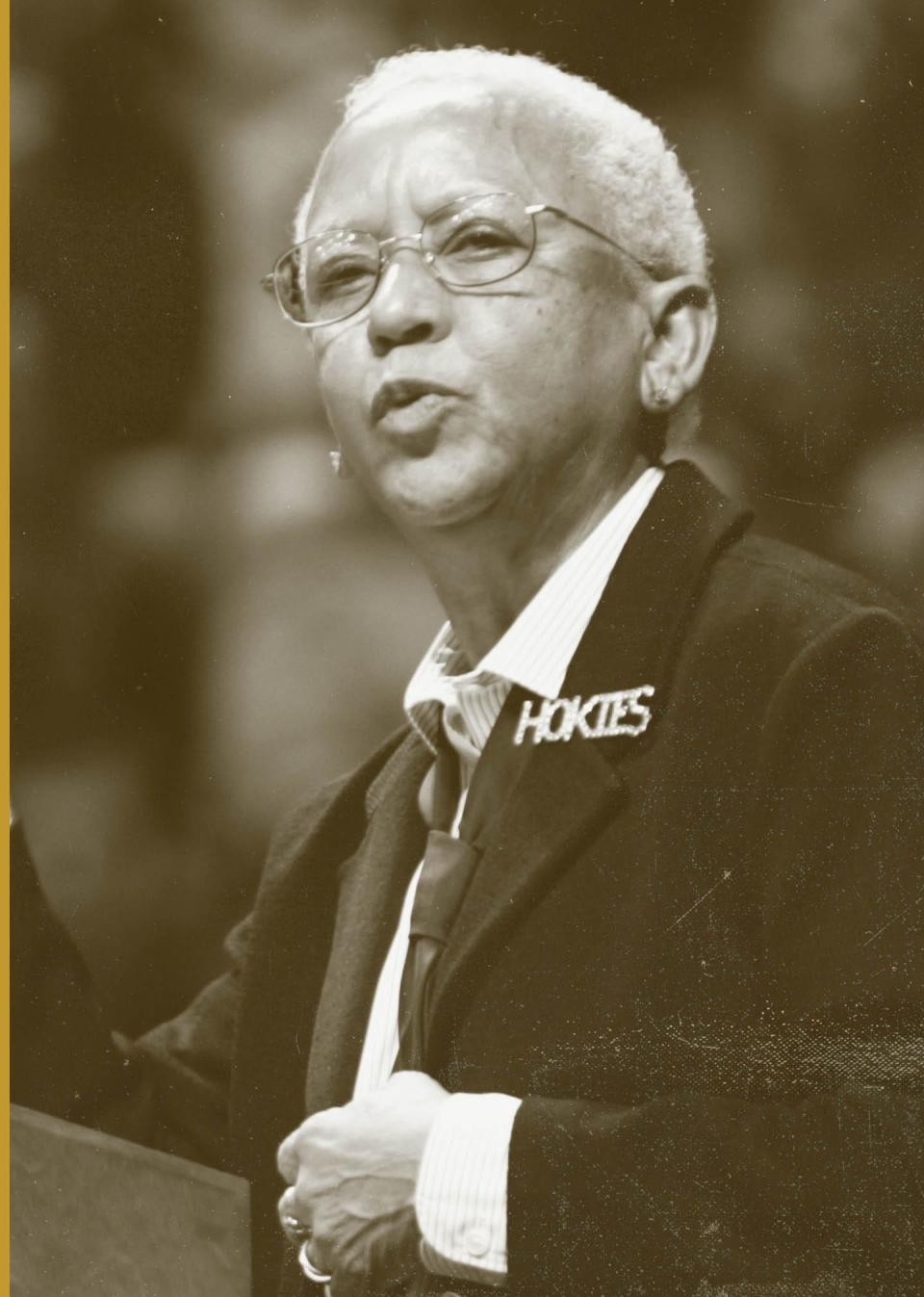
Nikki Giovanni was born June 7, 1943 in Knoxville, Tennessee, as Yolande Cornelia Giovanni.
Giovanni grew up primarily in Cincinnati but returned to Tennessee for college at Fisk University in Nashville, a historically Black college, where she was editor of the campus literary journal.
She graduated in 1968, the same year her first book of poetry, "Black Feeling Black Talk," was published, establishing her as an important voice not just in African American poetry but in American poetry.
The tone of her early poems was revolutionary: “And war wooed god / And america was born.”
But even in her first book she sensed her potential place and foresaw the future: “then as i grew and matured / i became more sensible / and decided i would / settle down / and just become / a sweet inspiration.”
She has won many awards for her poetry, her advocacy and her children’s books.
Publisher’s Weekly wrote of Giovanni that “her consciousness of roots in oral traditions and her charismatic delivery” laid the groundwork for a new generation’s poetry-slam and spoken-word events.
For more than 30 years she has been on the faculty at Virginia Tech as the Distinguished Professor of English. Her connection to the college, and the state of Virginia, was cemented when she delivered the chant-poem “We Are Virginia Tech” at a remembrance service after the 2007 on-campus shooting that left 32 people dead. “We are brave enough to bend to cry / and sad enough to know we must laugh again / ...We are strong, and brave, and innocent, and unafraid. / We are better than we think and not quite who we want to be. / We will prevail. We will prevail!”
On her website she writes, “I highly recommend old age; it’s fun.”
Mary T. Christian
Politician
(1924-2019)
Throughout her career, Mary T. Christian was a champion of education, a longtime legislator and a committed community leader. Christian was the first Black person and the first woman to represent Virginia’s 92nd House District and the city of Hampton after Reconstruction. After her 1985 election, she served as delegate until her retirement in 2004. Christian was also the first Black woman elected to the Hampton City School Board.
Born and raised in Hampton, Virginia, Christian grew up as the second of five children. After high school, she earned a bachelor’s in elementary education from Hampton Institute (now Hampton University), a master’s from Columbia University and a doctorate in education from Michigan State University.
She began her career as an educator at Aberdeen Elementary School in Hampton, where she was an elementary school teacher. Christian, or “Dr. C” as her students called her, eventually served as a professor at Hampton University for more than 25 years and became dean of the School of Education.
Christian was a political activist and served as a campaign manager on four campaigns before launching her own political career. During her time in the General Assembly, Christian was a member of several committees and was one of the first Black people appointed to the House Appropriations Committee. She focused on supporting and introducing education and healthcare legislation.
After she retired from the General Assembly, Christian did not simply relax at home; she continued to organize in her community. In 2013 she co-founded the Barrett-Peake Heritage Foundation, an organization that aims to restore and preserve African American sites in Hampton, Virginia. In the 1990s, Christian gained support for her movement to preserve African American cemeteries. The Barrett-Peake Heritage Foundation continues this work and hopes to fulfill Christian’s vision for the foundation’s future.
Dorothy Height
Civil rights activist
(1912-2010)
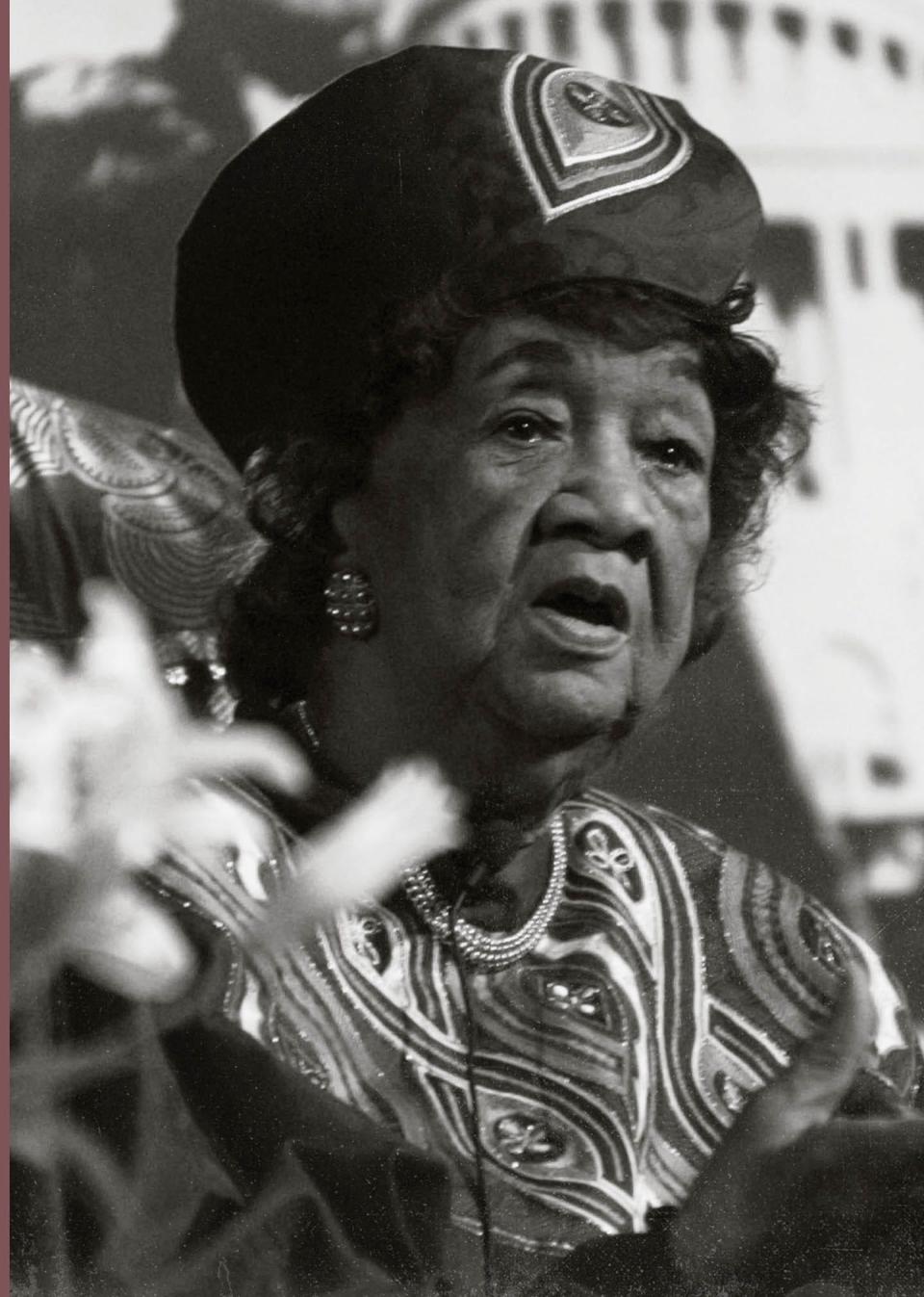
Richmond, Virginia, has been the birthplace of many progressive leaders who have moved forward the American cause of social justice. The most influential, perhaps, is a woman who was crucial in the entire advancement of the civil rights movement.
Yet you might not know her name. She was snubbed in her eras (she lived through many of them), and her name has not been widely raised to the pinnacle of popular history.
Dorothy Height certainly deserves acclaim.
She led national programs and fought for causes with creativity and spirit – and brought together seamlessly the fight for the rights of women and of Black Americans when those efforts had been split apart.
Barack Obama, himself a student of history, called her “the godmother of the civil rights movement and a hero to so many Americans.”
Barnard College denied her enrollment despite her having been accepted to the school. The male leaders of the civil rights movement kept her to the side. Even though she was a strong speaker and sat close to the Rev. Martin Luther King Jr. during the March on Washington and co-organized the event, she wasn’t allowed to speak that day.
She fought the tide of lynchings in the early 20th century and advocated for criminal justice reform despite resistance in so many quarters.
At a young age, Height clearly had thought hard about citizen rights and had seen herself as an inheritor of those rights, despite the message at the time from white America. She entered an oratory contest in high school about the Constitution – the 13th, 14th and 15th amendments – and was the only Black student to compete at nationals. She won and was given a four-year college scholarship by an all-white panel. “Since then, I have always been caught in the realization of how the Constitution guarantees civil and human rights,” she said to The New York Times, “but how, as Black people, we have had to work to get laws to assure for us those rights that are already guaranteed.”
Her career brought big accomplishments (she was the president of the National Council of Negro Women for 40 years and changed the YWCA for the better) and smaller solution-focused projects such as the “pig bank” in the South to support the food needs of families. She fought for progress on unemployment, illiteracy and voter awareness.
More coverage
Women of the Century: They didn’t succeed despite adversity, but often because of it
50 states: Learn about notable women from every state
Who is your Woman of the Century?: Let us know
Recognizing women past and present: See all of our coverage
Contributing: Jeff Schwaner, William Ramsey, Brad Zinn, Leanna Smith and Patrick Hite of The News Leader
Special thanks to Dr. Heather Coltman of James Madison University; Deona Houff, formerly of the News Leader; Veronica Garabelli of Virginia Commonwealth University; Leilia Magee of The Progress Index; Dr. Melody Hackney of Hopewell Public Schools; Colita Fairfax of Norfolk State University; and Jamie Jones Miller at the Department of Defense.
Sources used in the Women of the Century list project include newspaper articles, state archives, historical websites, encyclopedias and other resources.
This article originally appeared on USA TODAY: Grammy Awards winner June Cash on Virginia Women of the Century list
